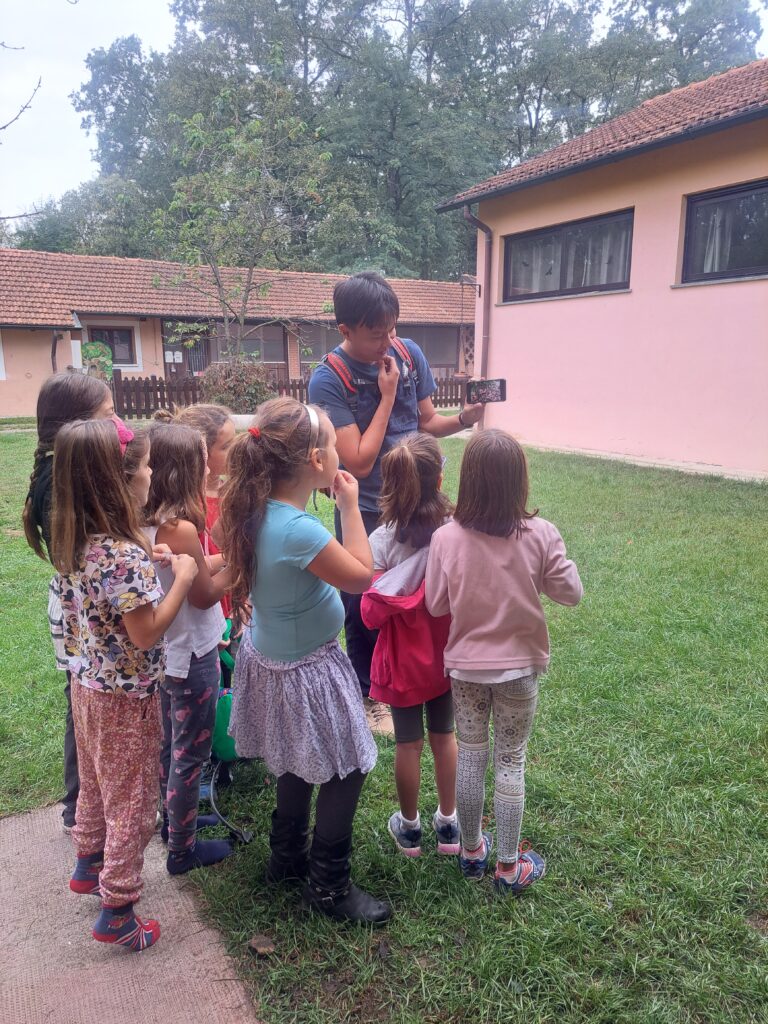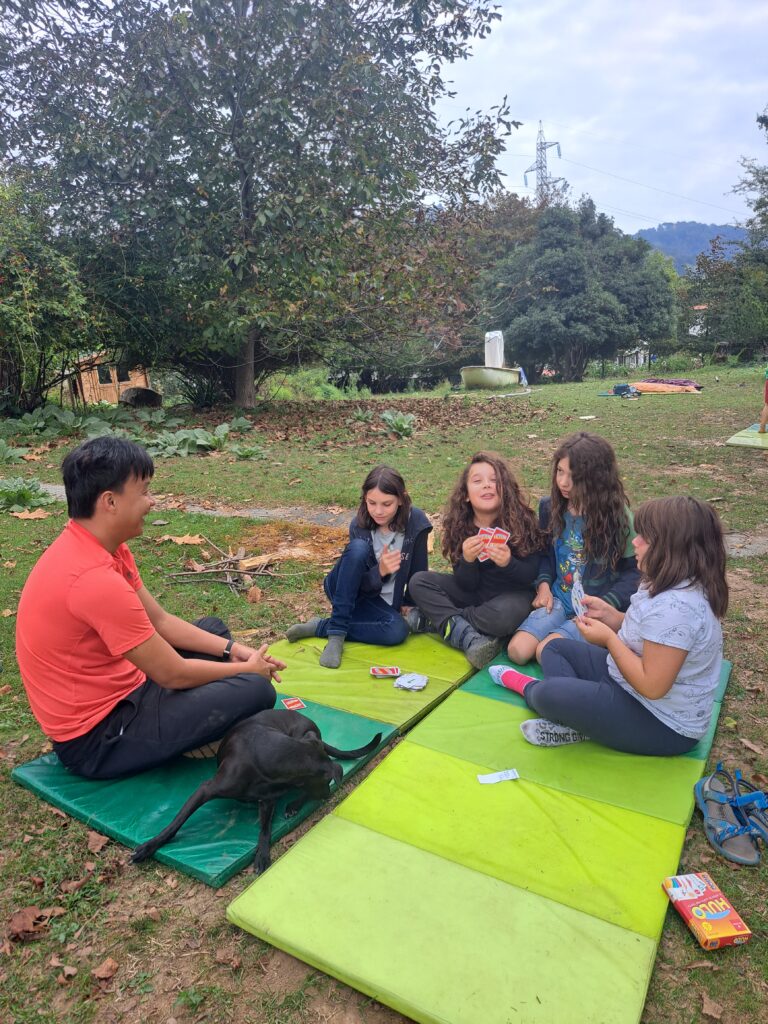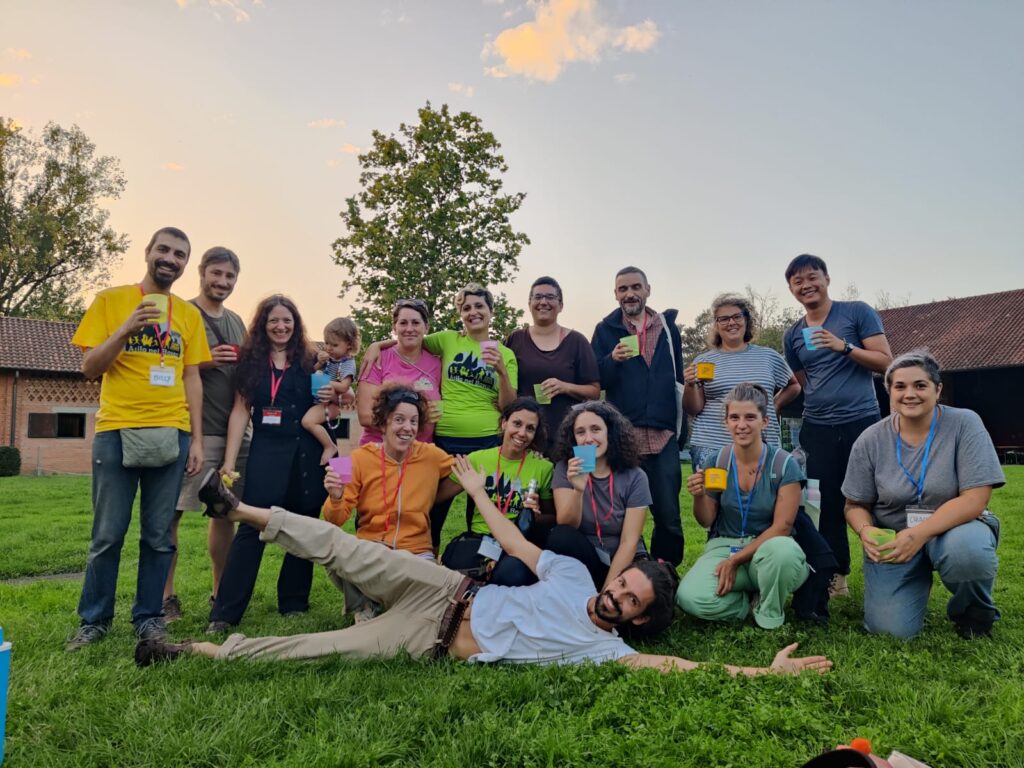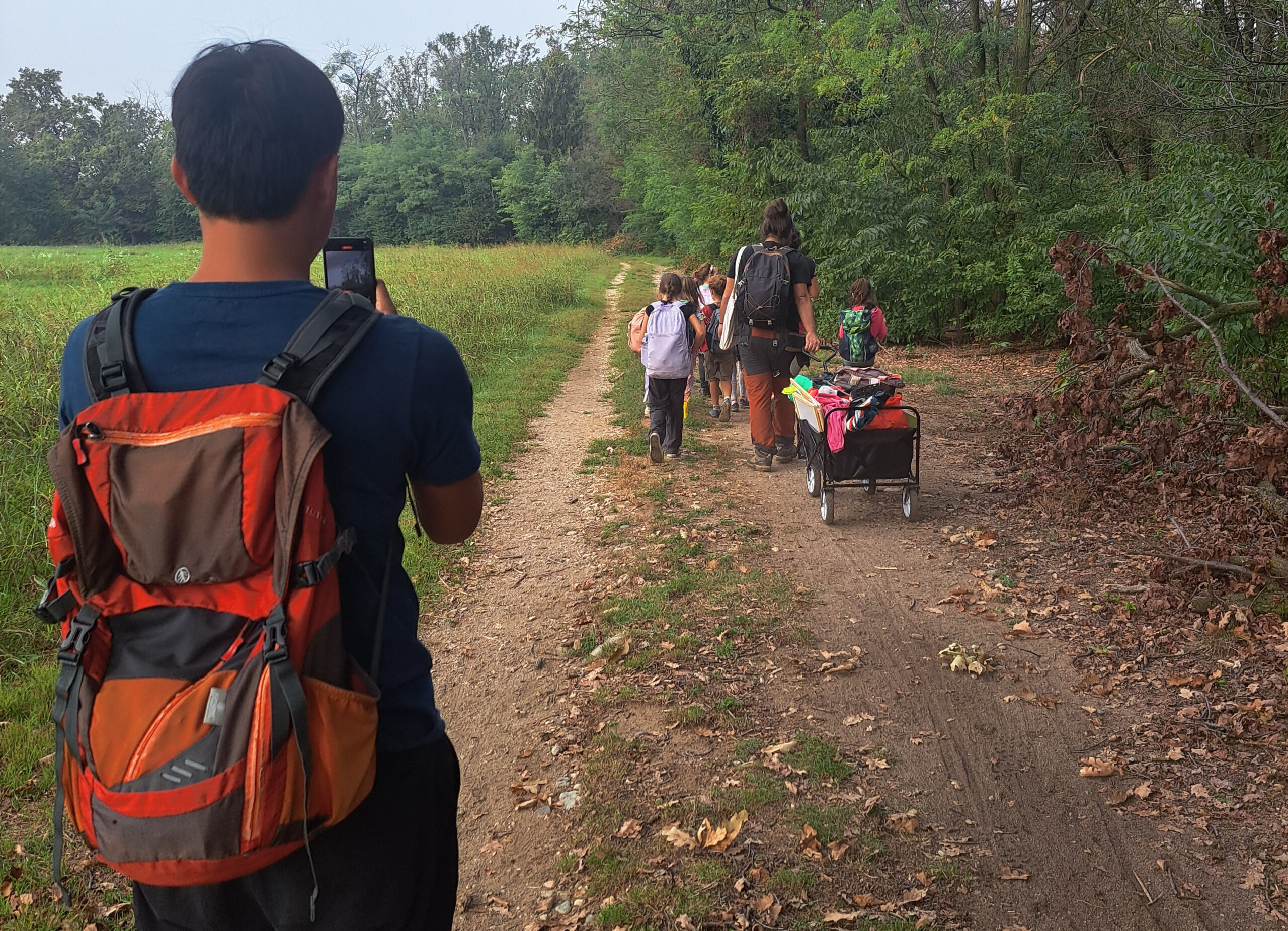On the meaning of Forest Pedagogy
by Selima Negro
I obviously follow many Forest Schools social media accounts, and have been for many years. I have my all time favourites and some that become intensely interesting for a while. I’ve been steading following Forest School Singapore social media for some time and I often found words that resonated with me. On the 4th of July 2022 I read a post that made me think “I have to meet them!”. The central part said:
“Forest School is not just an education program; it is a lifestyle, it is a community. It is a community whereby everyone is involved in the raising process of our children. As the saying goes, It takes a village to raise a child. But I will take it further, as Teacher Tom (a renowned educational author) says “It takes a child to raise a village”. Our children are the source of our existence. They teach us how to be a better adult, and sometimes how to be a child again. They embody everything about Nature. Their quirks, wisdom, aggression and growth are reflective of the Nature in our environment and the Nature in us. Let’s endeavour from here on in, as a community to raise our children together as a village. Not about yours or mine. But our children.”
I feel that sometimes the deepness of Forest Pedagogy is played down when we talk about it just as an opportunity to readjust some limits of the contemporary educational system. Don’t misunderstand me, I think it is actually a great way to have children, parents and teachers experiment some of that freedom, sense of self-efficacy and connectedness to the world that we miss so much in the everyday life in many parts of the world. But I also think there is so much more to it!
Anyway, I liked what I read and that led me to write to them and, after some exchanges, to invite Darren Quek from Forest School Singapore to our national conference on Forest Pedagogy that we organized on the 14th October 2023 in Milano.
Darren was brave enough to accept our invite to talk at the conference and spend some time visiting Forest Pedagogy initiatives in Italy with me. Thanks to him I travelled without moving from home, rather going through the places and relationships that have characterized my (now almost) 10 years of experience in the world of Forest Pedagogy. We took a journey together through places and times, from which I “took home” some confirmations and many new insights that made me readjust in some ways the meaning of Forest Pedagogy for me.

1. A personal journey
Each one of our personal journeys to Forest Pedagogy contains some of the reasons why this approach can be so transformational for kids and so important in the educational contemporary context. Every story about ourselves as kids in a school context, of our difficulties as educators, of our experiences as parents adds a piece on why we do what we do.
That is probably true for most people that work in educational contexts, but being outdoors, and not putting yourself in the position of the one that organize, led and/or control what is going to happen, you accept not to be protected by a fixed role and you expose yourself to the possibility of facing the unexpected. It’s a great risk, and every adult that accept that, probably have accumulated a great deal of significant experience that makes it clear that it is worth it.
And at the same time, the curiosity, trust in others and in the world, the attitude to wait and observe, the attention to the right balance of familiarity and novelty that we cultivate in Forest Pedagogy settings becomes an attitude to life in general. Sometimes people describe Forest School’s kids as very attentive, active, responsive to both the physical and social environment: that’s true for adults too, often facilitators develop a way of being present to themselves and the world that become a second nature.
2. A journey beyond words
This journey can be told and shared with words, but there is more to it that is not possible to express even with the best possible narrative.
Many of us share a lot of their journey in Forest Pedagogy, because we want to spread awarness of its significance. But we always reach a certain point when we feel that people must try it to really understand. There are some things that cannot (and maybe should not be?) expressed in words. It’s not just that we still need to find the right stories and definitions, but part of the Forest Pedagogy experience is simply not cognitive and can be understood only through a shared experience.
As you can see yourself in the words and stories of others, you can also find connection in doing something together. There are some fundamental human experiences that are basically the same everywhere: when you live them together you recognize them, even if you may call them differently. Children’s play is one of them. Another one is the sense of wonder and connection you feel in front of a wild animal or a particular landscape (even if you may call it spirituality or optimal sensory activation 😉).
And they happen to be the two main pillars of the Forest Pedagogy experience!

3. Accepting the dark side
Authenticity is a slippery word, it can be interpreted as a total openness about oneself. It can be confused with absolute coherence. But people are complex, and often live in contradictions. Sometimes authentic people are not so easy to understand.
I think authenticity means, before anything else, to be true to ourselves. To admit that sometimes we do what we want, what we like and what we need. It means to be conscious where we are at, and why. It is not easy!
I think it means to accept that there are different sides of us, and they are all connected. Authenticity is also to be clear about your own boundaries, and accepting what you cannot achieve. It means to accept that experiences can change you. It is to accept that complexity, conflict and change can make you struggle, and that is part of the way, for everyone.
What you learn in Forest Pedagogy is to trust the process: you learn that if you want to speed up through the difficult part to reach the positive ad agreeable outcome, you may lose your way completely.
4. Community
Finally, the most important thing that I feel I took home is that building community is not just about meeting and weaving relationships, but it is also, and more importantly, about raising the consciousness of the impact of Forest Pedagogy approach on people and environment. Starting from the acknowledgement of everyone’s need for interdependence, but also for autonomy, participation, and moving between multiple communities of practice.
It’s not only about building one’s own cozy and welcoming community, but constantly asking oneself what consequences my actions, thoughts, and emotions can have in interactions with other people, near and far away. In other words, we cannot form a good and healthy educational community of children and parents around our Forest Pedagogy practices, if we don’t try and build a social awareness of the impact that Forest Pedagogy can have in the world around us.
These elements make possible an encounter that redefines geographic and political boundaries and allows for recognition (“Same!”) and building communities despite distance and differences.

Ringrazio i progetti de Il Bosco Magico a Vanzago, A.L.I. di Casa Pedagogica e Un bosco con me di CoopBaby360 al Parco Nord di Milano e S.A.L.P.A nel bosco di Coop Baby360 a Osnago per aver ospitato me e Darren nei nostri giri di osservazione!

